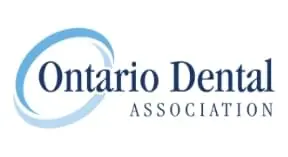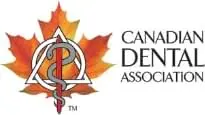WISDOM TEETH EXTRACTIONS
Your third molars, which you likely know as your wisdom teeth, are usually the final teeth in your mouth to erupt. These four teeth, two on the top and two on the bottom, appear at the back of your mouth normally between the ages 15 and 25. These teeth earned their name from the thought they erupt at a time many consider to be an age of maturity or wisdom, so to speak.
Unfortunately, an individual’s mouth may not always have enough space to accommodate the correct eruption of wisdom teeth. If this happens to you, your wisdom teeth can become impacted in a painful and even harmful way in your mouth. Should you leave this untreated, impaction can result in infection, cysts, tumors, and damage to the other teeth in your mouth.
While you may think impaction is the same across the board, there are actually different degrees of impaction, based on the depth of your wisdom teeth in your jaw. These vary from soft tissue, partial bony, and complete impactions. These will be discussed with your Cambridge dentist and the procedure will be discussed as required.
Just because your wisdom teeth are not causing issues now does not mean they will remain that way in the future. The best way to determine the likelihood of problems with your wisdom teeth is to see your dentist and have a Panoramic, or full-head radiograph, to determine the position and angulation of the tooth in relation to the your age to predict future concerns.
Extracting wisdom teeth at a young age prior to symptoms setting in has many benefits such as:
- smaller teeth
- easier and more predictable surgeries
- safer surgeries
- faster healing as a result of your younger age.
If you have any questions regarding your wisdom teeth please give us a call and have them examined.
Why You Should Extract Your Wisdom Teeth
Prevent Tooth Damage
The teeth right in front of your wisdom teeth, referred to as your second molars, bear the brunt of the harmful effects of impacted wisdom teeth. They see more cavities, possible bone loss, as well as periodontal disease (commonly referred to as gum disease).
Prevent Disease
Although cysts and tumours are extremely rare results, they can occur around impacted wisdom teeth if the situation goes unchecked and untreated. This will show up on a panoramic radiograph, which is why dentists recommend them for all patients.
Prevent Infection
If you do not take care of your impacted wisdom teeth, you run the risk of bacteria and food particles becoming trapped underneath your gum tissue, causing you to develop an infection. This can cause significant pain as well as danger to the health of your teeth.
Prevent Tooth Crowding
Some dental professionals believe impacted wisdom teeth actually put additional pressure on your other teeth, which can result in misalignment, crowding, et cetera. It is important to note, however, not all accept this theory and scientific studies have not proven it. However, crowding and misalignment of your teeth can cause significant issues should you not receive treatment.
Get An Examination!
Early examination and treatment are the key to the best results after a wisdom tooth extraction. The best time for early examination is normally during an individual’s mid-teen years. It is important, regardless, to have a thorough examination, since your dentist needs all the information they can get to provide you with the best options for your specific case, whether it be extraction or enhanced cleaning measures.
The Procedure
Wisdom tooth extraction is quite the common procedure. It usually takes place in a dental clinic or an oral surgeon’s office. The reasons an oral surgeon may be involved are the difficulty of the case as well as if you require sedation. We provide local, conscious, and moderate sedation (sedatives and/or laughing gas), though oral surgeons can perform the extraction with general anesthesia or intravenous sedation.
The surgery does not require you to remain there overnight, although you will need someone to pick you up and take you home afterwards, as you will not be in a safe driving state. You will receive detailed post-operative instructions, which often include a prescription for a painkiller and potentially antibiotics to reduce the risk of infection during the healing process. These instructions are designed to manage discomfort, swelling, and make the healing process as comfortable as possible.




